HIS COVENANTS
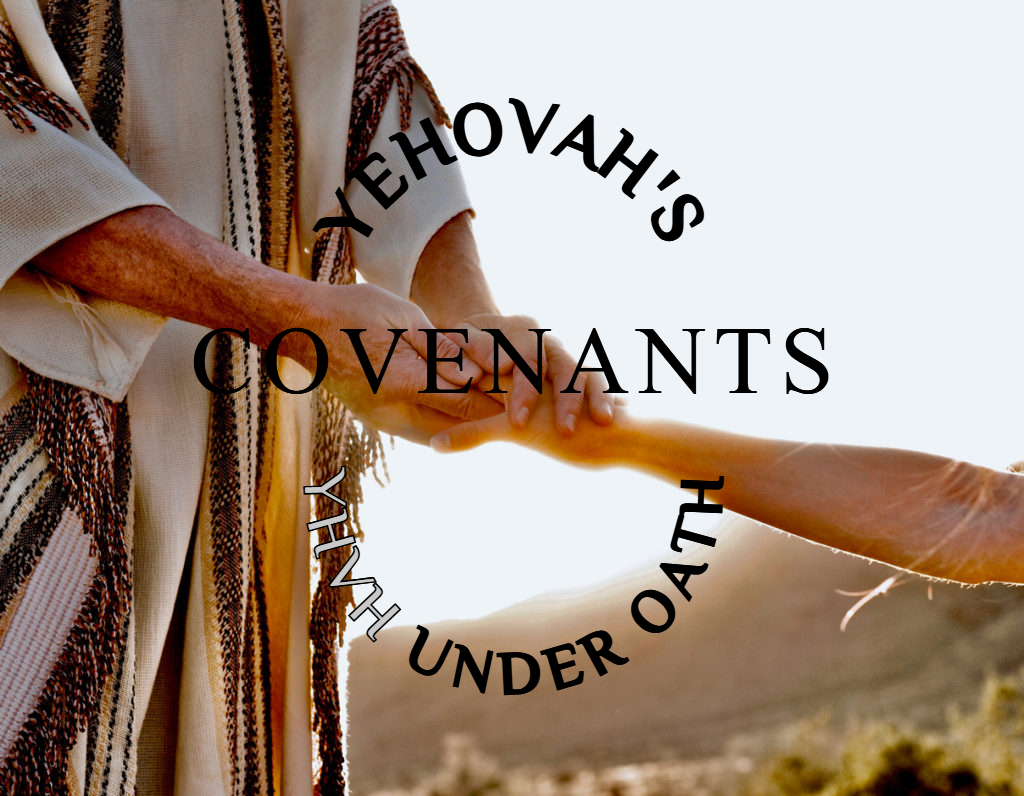
The covenants of Scripture are the permanent, legal transactions Avinu Elohei made with various individuals and that extended to their descendants.
Avinu Elohei's covenants are essential because they represent sacred agreements that guide our relationship with Him, outlining the blessings we receive when we obey His TORAH. They help us understand our commitments and deepen our connection to Avinu Elohei, ultimately leading to spiritual growth and fulfillment.
Noahic Covenant
The Noahic Covenant is a promise made by Avinu Elohei to Noah and his descendants after the flood, signifying that He would never again destroy the earth with a flood. The rainbow serves as the sign of this covenant, representing Avinu Elohei's mercy and commitment to all living creatures.
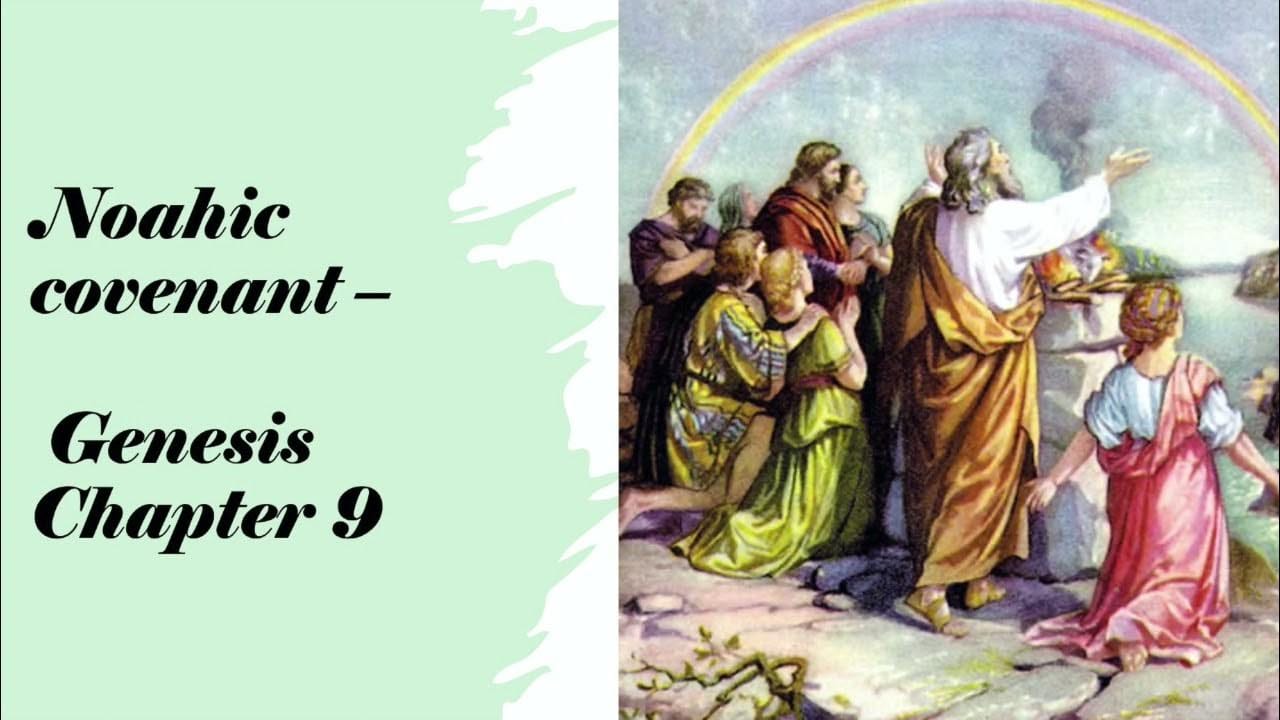
Overview of the Noahic Covenant
The Noahic Covenant is a significant biblical agreement established by Avinu Elohei with Noah and all living creatures after the Great Flood. It is detailed in Genesis 8:20-9:17 and serves as a foundational covenant for humanity.
Supporting Scripture:
Gen 8:20 And Noaḥ built a slaughter-place to יהוה, and took of every clean beast and of every clean bird, and offered ascending offerings on the slaughter-place.
Gen 8:21 And יהוה smelled a soothing fragrance, and יהוה said in His heart, “Never again shall I curse the ground because of man, although the inclination of man’s heart is evil from his youth, and never again strike all living creatures, as I have done,
Gen 8:22 as long as the earth remains, seedtime and harvest, and cold and heat, and summer and winter, and day and night shall not cease.”
Gen 9:1 And Elohim blessed Noaḥ and his sons, and said to them, “Be fruitful and increase, and fill the earth.
Gen 9:2 “And the fear of you and the dread of you is on every beast of the earth, on every bird of the heavens, on all that creeps on the ground, and on all the fish of the sea – into your hand they have been given.
Gen 9:3 “Every creeping creature that lives is food for you. I have given you all, as I gave the green plants.
Gen 9:4 “But do not eat flesh with its life, its blood.
Gen 9:5 “But only your blood for your lives I require, from the hand of every beast I require it, and from the hand of man. From the hand of every man’s brother I require the life of man.
Gen 9:6 “Whoever sheds man’s blood, by man his blood is shed, for in the image of Elohim has He made man.
Gen 9:7 “As for you, be fruitful and increase, bring forth teemingly in the earth and increase in it.”
Gen 9:8 And Elohim spoke to Noaḥ and to his sons with him, saying,
Gen 9:9 “And I, see, I establish My covenant with you and with your seed after you,
Gen 9:10 and with every living being that is with you: of the birds, of the cattle, and of every beast of the earth with you, of all that go out of the ark, every beast of the earth.
Gen 9:11 “And I shall establish My covenant with you, and never again is all flesh cut off by the waters of the flood, and never again is there a flood to destroy the earth.”
Gen 9:12 And Elohim said, “This is the sign of the covenant which I make between Me and you, and every living being that is with you, for all generations to come:
Gen 9:13 “I shall set My rainbow in the cloud, and it shall be for the sign of the covenant between Me and the earth.
Gen 9:14 “And it shall be, when I bring a cloud over the earth, that the rainbow shall be seen in the cloud,
Gen 9:15 and I shall remember My covenant which is between Me and you and every living being of all flesh, and never again let the waters become a flood to destroy all flesh.
Gen 9:16 “And the rainbow shall be in the cloud, and I shall see it, to remember the everlasting covenant between Elohim and every living being of all flesh that is on the earth.”
Gen 9:17 And Elohim said to Noaḥ, “This is the sign of the covenant which I have established between Me and all flesh that is on the earth.”
Key Features
Universal Scope
- Parties Involved: Avinu Elohei made this covenant with Noah, his descendants, and every living creature on earth.
- Promise: Avinu Elohei pledged never to destroy the earth again with a flood.
Preservation of Creation
- Nature's Stability: Avinu Elohei promised that the cycles of nature, such as seasons and day and night, would continue as long as the earth remains.
- Covenant Sign: The rainbow serves as a visible sign of this covenant, reminding both Avinu Elohei and humanity of His promise.
Human Responsibilities
- Covenant Obligations: Humanity is commanded to be fruitful, multiply, and fill the earth.
- Ethical Guidelines: The covenant includes basic ethical principles, such as prohibitions against murder and guidelines for food consumption.
Significance
The Noahic Covenant is often viewed as a form of common grace, emphasizing Avinu Elohei's mercy and commitment to sustaining life on earth despite human sinfulness. It establishes a framework for human governance and ethical behavior, laying the groundwork for future covenants in the Bible.
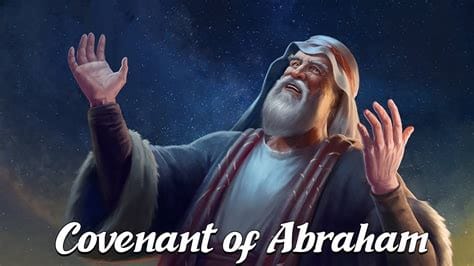
Abrahamic Covenant
The Abrahamic covenant in Judaism refers to the solemn agreement between Y'hovah and Abraham, where Y'hovah promised Abraham numerous descendants, a blessed nation, and the land of Canaan as a permanent possession. This covenant is foundational to Jewish identity and belief, marking the beginning of the relationship between Avinu Elohei and the Jewish people.
Overview of the Abrahamic Covenant in Judaism
The Abrahamic Covenant is a foundational element of Judaism, representing a solemn agreement between Y'hovah and Abraham. This covenant is significant for its promises regarding land, descendants, and blessings.
Supporting Scripture:
Gen 12:1 And יהוה said to Aḇram, “Go yourself out of your land, from your relatives and from your father’s house, to a land which I show you.
Gen 12:2 “And I shall make you a great nation, and bless you and make your name great, and you shall be a blessing!
Gen 12:3 “And I shall bless those who bless you, and curse him who curses you. And in you all the clans of the earth shall be blessed.”
*
Gen 13:14 And after Lot had separated from him, יהוה said to Aḇram, “Now lift up your eyes and look from the place where you are, northward and southward and eastward and westward,
Gen 13:15 for all the land which you see I shall give to you and your seed forever.
Gen 13:16 “And I shall make your seed as the dust of the earth, so that, if a man could count the dust of the earth, then your seed also could be counted.
Gen 13:17 “Arise, walk in the land through its length and its width, for I give it to you.”
*
Gen 17:1 And it came to be when Aḇram was ninety-nine years old, that יהוה appeared to Aḇram and said to him, “I am Ěl Shaddai – walk before Me and be perfect.
Gen 17:2 “And I give My covenant between Me and you, and shall greatly increase you.”
Gen 17:3 And Aḇram fell on his face, and Elohim spoke with him, saying,
Gen 17:4 “As for Me, look, My covenant is with you, and you shall become a father of many nations.
Gen 17:5 “And no longer is your name called Aḇram, but your name shall be Aḇraham, because I shall make you a father of many nations.
Gen 17:6 “And I shall make you exceedingly fruitful, and make nations of you, and sovereigns shall come from you.
Gen 17:7 “And I shall establish My covenant between Me and you and your seed after you in their generations, for an everlasting covenant, to be Elohim to you and your seed after you.
Gen 17:8 “And I shall give to you and your seed after you the land of your sojournings, all the land of Kena‛an, as an everlasting possession. And I shall be their Elohim.”
Gen 17:9 And Elohim said to Aḇraham, “As for you, guard My covenant, you and your seed after you throughout their generations.
Gen 17:10 “This is My covenant which you guard between Me and you, and your seed after you: Every male child among you is to be circumcised.
Gen 17:11 “And you shall circumcise the flesh of your foreskin, and it shall become a sign of the covenant between Me and you.
Gen 17:12 “And a son of eight days is circumcised by you, every male child in your generations, he who is born in your house or bought with silver from any foreigner who is not of your seed.
Gen 17:13 “He who is born in your house, and he who is bought with your silver, has to be circumcised. So shall My covenant be in your flesh, for an everlasting covenant.
Gen 17:14 “And an uncircumcised male child, who is not circumcised in the flesh of his foreskin, his life shall be cut off from his people – he has broken My covenant.”
Isaac's Birth Promised
Gen 17:15 And Elohim said to Aḇraham, “As for Sarai your wife, do not call her name Sarai, for Sarah is her name.
Gen 17:16 “And I shall bless her and also give you a son by her. And I shall bless her, and she shall become nations – sovereigns of peoples are to be from her.”
Gen 17:17 And Aḇraham fell on his face and laughed, and said in his heart, “Is a child born to a man who is a hundred years old? Or is Sarah, who is ninety years old, to bear a child?”
Gen 17:18 And Aḇraham said to Elohim, “Oh, let Yishma‛ěl live before You!”
Gen 17:19 And Elohim said, “No, Sarah your wife is truly bearing a son to you, and you shall call his name Yitsḥaq. And I shall establish My covenant with him for an everlasting covenant, and with his seed after him.
Gen 17:20 “And as for Yishma‛ěl, I have heard you. See, I shall bless him, and shall make him fruitful, and greatly increase him. He is to bring forth twelve princes, and I shall make him a great nation.
Gen 17:21 “But My covenant I establish with Yitsḥaq, whom Sarah is to bear to you at this appointed time next year.”
Gen 17:22 And when He had ended speaking with him, Elohim went up from Aḇraham.
*
Gen 22:17 that I shall certainly bless you, and I shall certainly increase your seed as the stars of the heavens and as the sand which is on the seashore, and let your seed possess the gate of their enemies.
Gen 22:18 “And in your seed all the nations of the earth shall be blessed, because you have obeyed My voice.”
*
Gal 3:6 Even so Aḇraham “did believe Elohim, and it was reckoned unto him as righteousness.” Gen_15:6.
Gal 3:7 Know, then, that those who are of belief are sons of Aḇraham.
Gal 3:8 And the Scripture, having foreseen that Elohim would declare right the nations by belief, announced the Good News to Aḇraham beforehand, saying, “All the nations shall be blessed in you,”a Gen_12:3. Footnote: a Gen_18:18.
Gal 3:9 so that those who are of belief are blessed with Aḇraham, the believer.
Key Promises of the Covenant
PROMISE DESCRIPTION
- LAND: Avinu Elohei promised Avraham the land of Kenaan/Canaan, which is often referred to as the promised land.
- Descendants: Avraham was assured that he would have numerous descendants, forming a great nation.
- Blessing: The covenant includes the promise that through Avraham, all nations of the earth would be blessed.
Significance of Abraham
- Father of Monotheism: Avraham is regarded as the first to teach the belief in one Elohim/God, making Him the central figure in Judaism.
- Covenant Ritual: The covenant was sealed through the practice of circumcision, which is a significant ritual in Jewish tradition.
Impact on Jewish Identity
The covenant is seen as the beginning of the relationship between Avinu Elohei and the Jewish people. It establishes the Jewish identity and the belief that they are Avinu Elohei's chosen people, tasked with following His TORAH/instructions and leading by example through faith and obedience. This relationship is often reflected in Jewish prayers and rituals, emphasizing the enduring nature of the covenant through generations.
The Abrahamic Covenant continues to influence Jewish beliefs and practices today, shaping the understanding of their spiritual and cultural heritage.
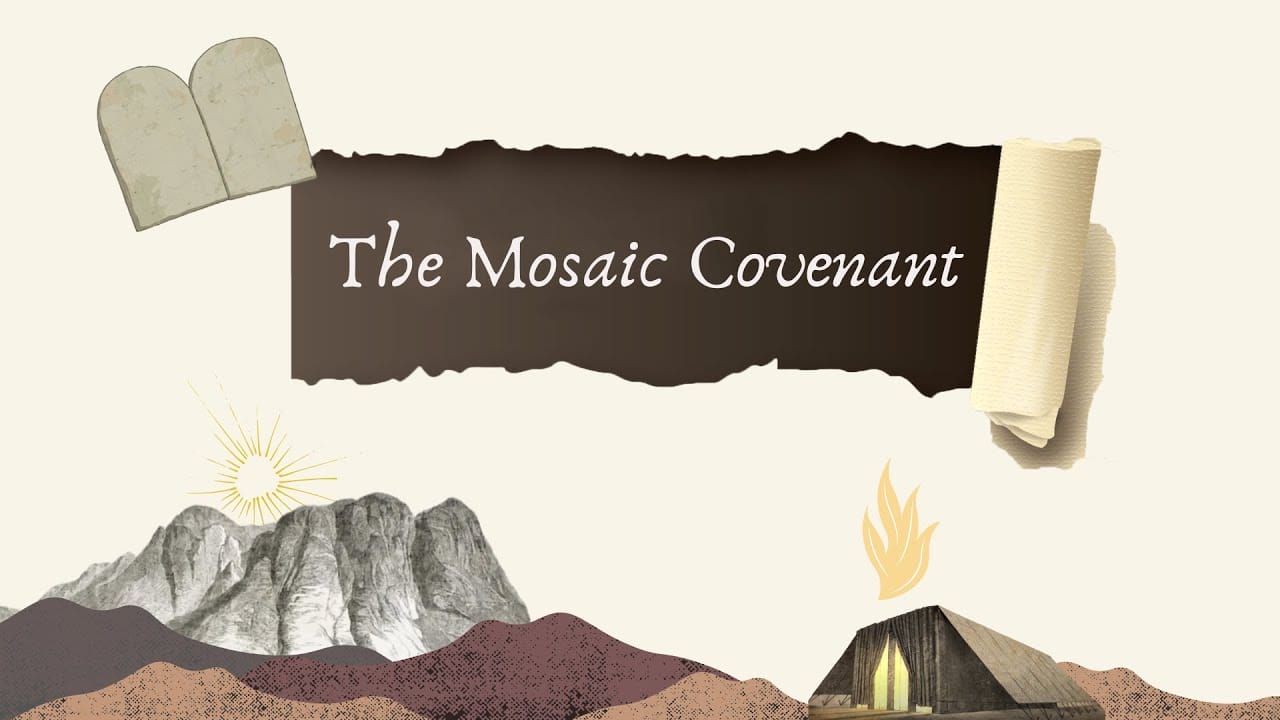
Mosaic Covenant
The Mosaic covenant, also known as the Sinaitic covenant, is a key agreement established between Y'hovah and the Israelites, detailing His mitzvot/laws, commandments, and precepts, given to Moshe on Mount Sinai after their exodus from Egypt. It plays a significant role in defining Jewish identity and religious practice, encompassing a comprehensive set of laws, including the Ten Commandments, that guide moral, civil, and ceremonial conduct for the Jewish people.
Overview of the Mosaic Covenant in Judaism
The Mosaic covenant, also known as the Sinaitic covenant, is a significant biblical agreement established between Y'hovah and the Israelites. This covenant was formed after the Israelites' exodus from Egypt and is detailed in the Hebrew Bible, particularly in the Book of Exodus.
Supporting Scripture:
Exo 20:1 And Elohim spoke all these Words, saying,
Exo 20:2 “I am יהוה your Elohim, who brought you out of the land of Mitsrayim, out of the house of slavery.
Exo 20:3 “You have no other mighty ones against My face.
Exo 20:4 “You do not make for yourself a carved image, or any likeness of that which is in the heavens above, or which is in the earth beneath, or which is in the waters under the earth,
Exo 20:5 you do not bow down to them nor serve them. For I, יהוה your Elohim am a jealous Ěl, visiting the crookedness of the fathers on the children to the third and fourth generations of those who hate Me,
Exo 20:6 but showing loving-commitment to thousands, to those who love Me and guard My commands.
Exo 20:7 “You do not bringa the Name of יהוה your Elohim to naught, for יהוה does not leave the one unpunished who brings His Name to naught. Footnote: aOr lift up, or take.
Exo 20:8 “Remember the Sabbath day, to set it apart.
Exo 20:9 “Six days you labour, and shall do all your work,
Exo 20:10 but the seventh day is a Shabbat of יהוה your Elohim. You do not do any work – you, nor your son, nor your daughter, nor your male servant, nor your female servant, nor your cattle, nor your stranger who is within your gates. Footnote: b There are other Sabbaths, but this is the weekly Sabbath.
Exo 20:11 “For in six days יהוה made the heavens and the earth, the sea, and all that is in them, and rested the seventh day. Therefore יהוה blessed the Sabbath day and set it apart.
Exo 20:12 “Respect your father and your mother, so that your days are prolonged upon the soil which יהוה your Elohim is giving you.
Exo 20:13 “You do not murder.
Exo 20:14 “You do not commit adultery.
Exo 20:15 “You do not steal.
Exo 20:16 “You do not bear false witness against your neighbour.
Exo 20:17 “You do not covet your neighbour’s house, you do not covet your neighbour’s wife, nor his male servant, nor his female servant, nor his ox, nor his donkey, or whatever belongs to your neighbour.”
*
Too much to print: Exodus 21:1 through Exodus 31:18
Key Features of the Mosaic Covenant
- Historical Context: The covenant was established at Mount Sinai, where Moshe received the laws from Avinu Elohei. It marked the formation of a covenant community among the Israelites.
- Content: The Mosaic covenant includes a comprehensive set of laws, most notably the Ten Commandments, but also encompasses hundreds of other ordinances covering civil, social, and religious guidelines.
- Conditional Nature: Unlike the earlier Abrahamic covenant, which is unconditional, the Mosaic covenant is conditional. It promises blessings for obedience and curses for disobedience, as outlined in Deuteronomy.
Significance in Jewish Tradition
- Guiding Principles: The Mosaic covenant serves as a foundational framework for Jewish identity and practice. It includes 613 commandments, which guide moral, ceremonial, and civil conduct.
- Covenantal Relationship: The covenant emphasizes a reciprocal relationship between Y'hovah and the Israelites, where adherence to the Torah is essential for maintaining Avinu Elohei's favor.
- Exclusivity: Judaism teaches that the Mosaic covenant was specifically given to the Jewish people and goyim/converts, with the exception of the Seven Laws of Noah, which apply to all humanity.
The Mosaic covenant remains a central element in Jewish theology and practice, shaping the religious and ethical landscape of Judaism throughout history.
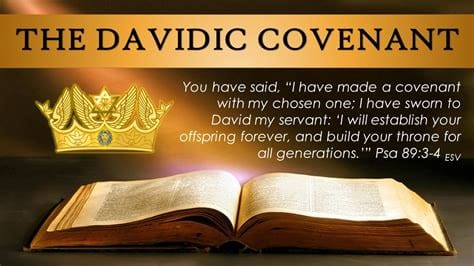
Davidic Covenant
The Davidic Covenant in Judaism refers to Y'hovah's promise to King David that his descendants would rule Israel forever, establishing a lasting dynasty. This covenant is significant as it is believed that HaMashiach will come from David's lineage, fulfilling Avinu Elohei's promise of an eternal Kingdom.
Overview of the Davidic Covenant
The Davidic Covenant is a significant promise made by Avinu Elohei to King David, found primarily in the biblical texts of 2 Samuel 7 and 1 Chronicles 17. This covenant establishes David's lineage as the royal line of Israel and includes several key promises.
Supporting Scripture:
2Sa 7:4 And it came to be that night that the word of יהוה came to Nathan, saying,
2Sa 7:5 “Go and say to My servant Dawiḏ, ‘Thus said יהוה, “Would you build a house for Me to dwell in?
2Sa 7:6 “For I have not dwelt in a house since the time that I brought the children of Yisra’ěl up from Mitsrayim, even to this day, but have moved about in a Tent and in a Dwelling Place.
2Sa 7:7 “Wherever I have walked with all the children of Yisra’ěl, have I ever spoken a word to anyone from the tribes of Yisra’ěl, whom I commanded to shepherd My people Yisra’ěl, saying, ‘Why have you not built Me a house of cedar?’ ” ’
2Sa 7:8 “And now, say to My servant Dawiḏ, ‘Thus said יהוה of hosts, “I took you from the pasture, from following the flock, to be ruler over My people, over Yisra’ěl.
2Sa 7:9 “And I have been with you wherever you have gone, and have cut off all your enemies from before you, and have made you a great name, like the name of the great ones who are on the earth.
2Sa 7:10 “And I shall appoint a place for My people Yisra’ěl, and shall plant them, and they shall dwell in a place of their own and no longer be afraid, neither shall the children of wickedness oppress them again, as at the first,
2Sa 7:11 even from the day I commanded rulers over My people Yisra’ěl, and have caused you to rest from all your enemies. And יהוה has declared to you that He would make you a house.
2Sa 7:12 “When your days are filled and you rest with your fathers, I shall raise up your seed after you, who comes from your inward parts, and shall establish his reign.
2Sa 7:13 “He does build a house for My Name, and I shall establish the throne of his reign forever.
2Sa 7:14 “I am to be his Father, and he is My son. If he does perversely, I shall reprove him with the rod of men and with the blows of the sons of men.
2Sa 7:15 “But My loving-commitment does not turn aside from him, as I turned it aside from Sha’ul, whom I removed from before you.
2Sa 7:16 “And your house and your reign are to be steadfast forever before you – your throne is established forever.” ’ ”
2Sa 7:17 According to all these words and according to all this vision, so Nathan spoke to Dawiḏ.
Key Promises of the Davidic Covenant
Major Provisions
- House: Avinu Elohei promises that David's descendants will rule as kings of Israel. David's son Shlomoh/Solomon would succeed him.
- Temple: Although David wished to build a temple for Avinu Elohei, he was told that his son Shlomoh would construct it instead.
- Throne: Avinu Elohei assures that David's throne will be established forever, signifying an everlasting dynasty.
- Kingdom: The covenant emphasizes that David's kingdom will endure, with a future Mashiach expected to come from his lineage. That Messiah is Y'hoshua HaMashiach.
Significance in Judaism
The Davidic Covenant is crucial in Jewish eschatology, as it foretells the coming of HaMashiach, a future king from David's line who will restore Israel and bring peace. This belief is deeply rooted in Jewish tradition and theology, highlighting the importance of David's lineage in the context of Jewish identity and faith.
The covenant reflects Avinu Elohei's commitment to David and his descendants, ensuring a lasting legacy that is central to Jewish history and belief.
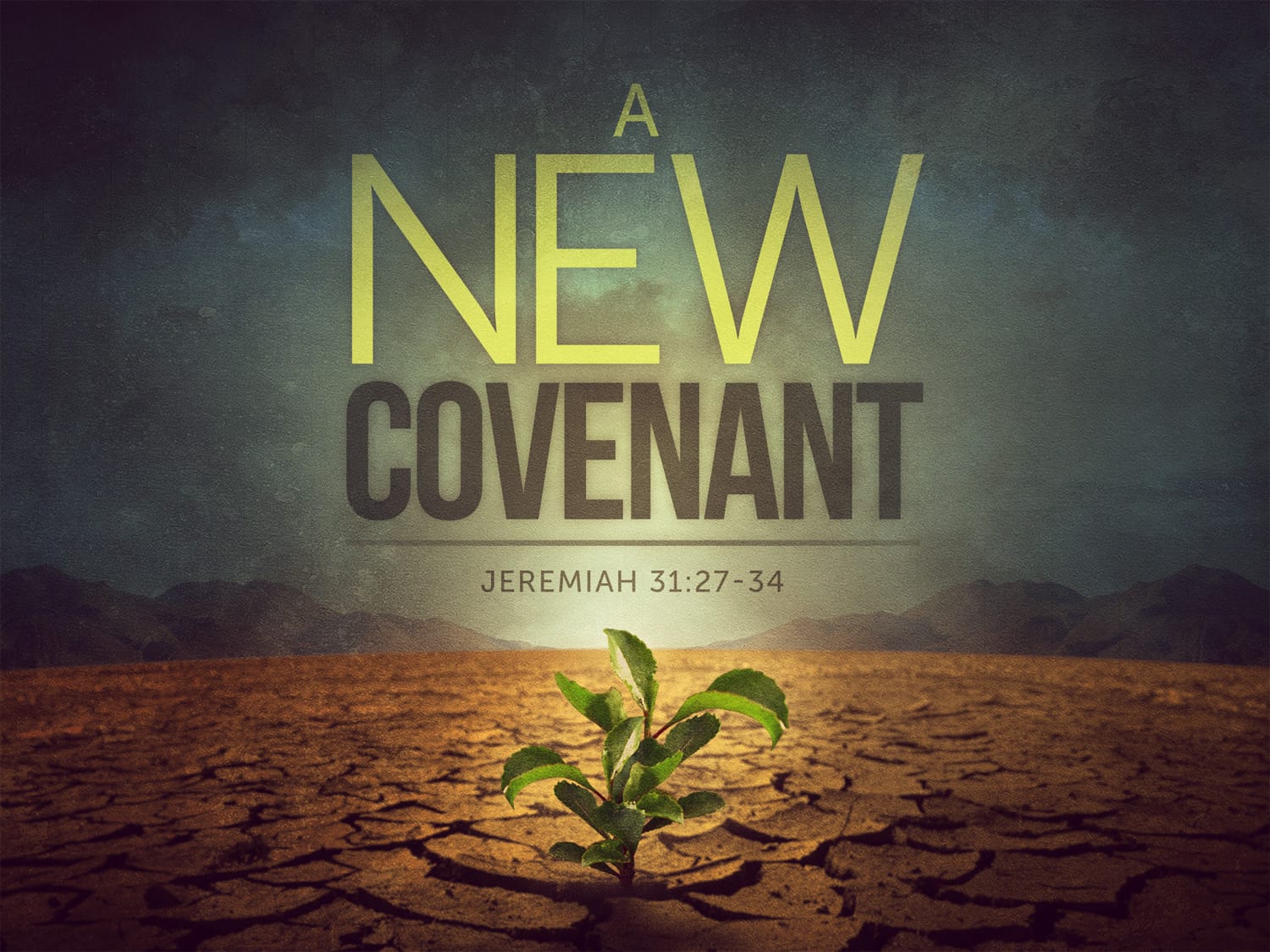
New Covenant
The Messianic view of the New Covenant emphasizes that it is a promise made primarily to Israel, as prophesied in Jeremiah 31, and is seen as a continuation rather than a replacement of the Old Covenant. It highlights the role of Y'hoshua (Jesus) as the mediator of this covenant, which includes TORAH being written on the hearts of believers, thus maintaining its significance in the lives of His talmidim.
Overview of the New Covenant in Mashiach Judaism
The New Covenant is a significant concept in Mashiach Judaism, emphasizing a renewed relationship between Y'hovah and His people, particularly Yisrael. It is rooted in biblical prophecy, specifically Jeremiah 31:31-34, which speaks of a covenant that differs from the previous one made at Sinai.
Supporting Scripture:
Jer 31:31 “See, the days are coming,” declares יהוה, “when I shall make a renewed covenant with the house of Yisra’ěl and with the house of Yehuḏah, a Footnote: a Heb_8:8-12, Heb_10:16-17.
Jer 31:32 not like the covenant I made with their fathers in the day when I strengthened b their hand to bring them out of the land of Mitsrayim, My covenant which they broke, though I was a husband to them,” declares יהוה. Footnote: bCommonly understood as “take hold of.”
Jer 31:33 “For this is the covenant I shall make with the house of Yisra’ěl after those days, declares יהוה: I shall put My Torah in their inward parts, and write it on their hearts. And I shall be their Elohim, and they shall be My people.
*
Heb 7:18 For there is indeed a setting aside of the former command d because of its weakness and unprofitableness, Footnote: d Or former Lěvitical command.
Heb 7:19 for the Torah, the law, e perfected naught, but the bringing in of a better expectation, through which we draw near to Elohim. Footnote: e We are brought near by the power of his spirit.
*
Heb 7:22 By as much as this יהושע has become a guarantor of a better covenant.
*
Heb 8:6 But now He has obtained a more excellent service, inasmuch as He is also Mediator a of a better covenant, which was constituted on better promises. Footnote: a Messiah is called the Mediator of the New (Renewed) Covenant in Hebrews, in three places: Heb_8:6, Heb_9:15, Heb_12:24.
Heb 8:7 For if that first covenant had been faultless, then no place would have been sought for a second.
Heb 8:8 For finding fault with them, He says, “See, the days are coming,” says יהוה, “when I shall conclude with the house of Yisra’ěl and with the house of Yehuḏah a renewed covenant,
Heb 8:9 not according to the covenant that I made with their fathers in the day when I took them by the hand to lead them out of the land of Mitsrayim, because they did not continue in My covenant, and I disregarded them,” says יהוה.
Heb 8:10 “Because this is the covenant that I shall make with the house of Yisra’ěl after those days, says יהוה, giving My laws in their mind, and I shall write them on their hearts, and I shall be their Elohim, and they shall be My people.
Heb 8:11 “And they shall by no means teach each one his neighbour, and each one his brother, saying, ‘Know יהוה,’ because they all shall know Me, from the least of them to the greatest of them.
Heb 8:12 “Because I shall forgive their unrighteousness, and their sins and their lawlessnesses I shall no longer remember.”b Jer_31:31-34 Footnote: b See also Heb_10:16-17.
Heb 8:13 By saying, ‘renewed,’ He has made the first old. Now what becomes old and growing aged is near disappearing.
*
Heb 10:16 “This is the covenant that I shall make with them after those days, says יהוה, giving My laws into their hearts, and in their minds I shall write them,”a Jer_31:33. Footnote: a See also Heb_8:8-12.
Heb 10:17 and, “Their sins and their lawlessnesses I shall remember no more.” Jer_31:34.
Key Features of the New Covenant
- Promise of Regeneration: The New Covenant includes a promise that Avinu Elohei will write His laws on the hearts of His people (circumcision of the heart), enabling them to follow Him more closely by the power of the Ruach HaKodesh and faith of Rabbi Y'hoshua (Jeremiah 31:33).
- Mediator: Y'hoshua (Yeshua) is viewed as the mediator of this New Covenant, which is considered better than the old covenant due to its promises and the nature of His priesthood (Hebrews 7:22).
- Inclusivity: While the New Covenant is primarily made with Israel, it extends to all nations, allowing Gentiles to participate in the blessings of this covenant without converting to Judaism by way of circumcision of the flesh.
Relationship with the Torah
- Continuity with the Torah: Mashiach Judaism teaches that the New Covenant does not abolish the Torah but fulfills or completes it. TORAH remains relevant, guiding the lives of believers in the context of grace and faith.
- Contrast with Replacement Theology: Unlike traditional Christian views that may suggest the New Covenant replaces the Old Covenant or replaces Yisrael with the Church, Messianic thought emphasizes that the New Covenant enhances and completes the original covenantal promises through Netzari Mashiach Judaism, NOT through pagan Christianity.
Conclusion
In Netzari Mashiach Judaism, the New Covenant is seen as a transformative promise that deepens the relationship between Avinu Elohei and His people, emphasizing both continuity with TORAH and the role of Y'hoshua as the Mashiach/Messiah. This perspective invites both Jews and Gentiles into a renewed covenantal relationship with Avinu Elohei Elyon.
By Rabbi Francisco Arbas
📧 franciscoarbas.yisrael@gmail.com
Following His ‘WAY’ — Netzari Mashiach Judaism
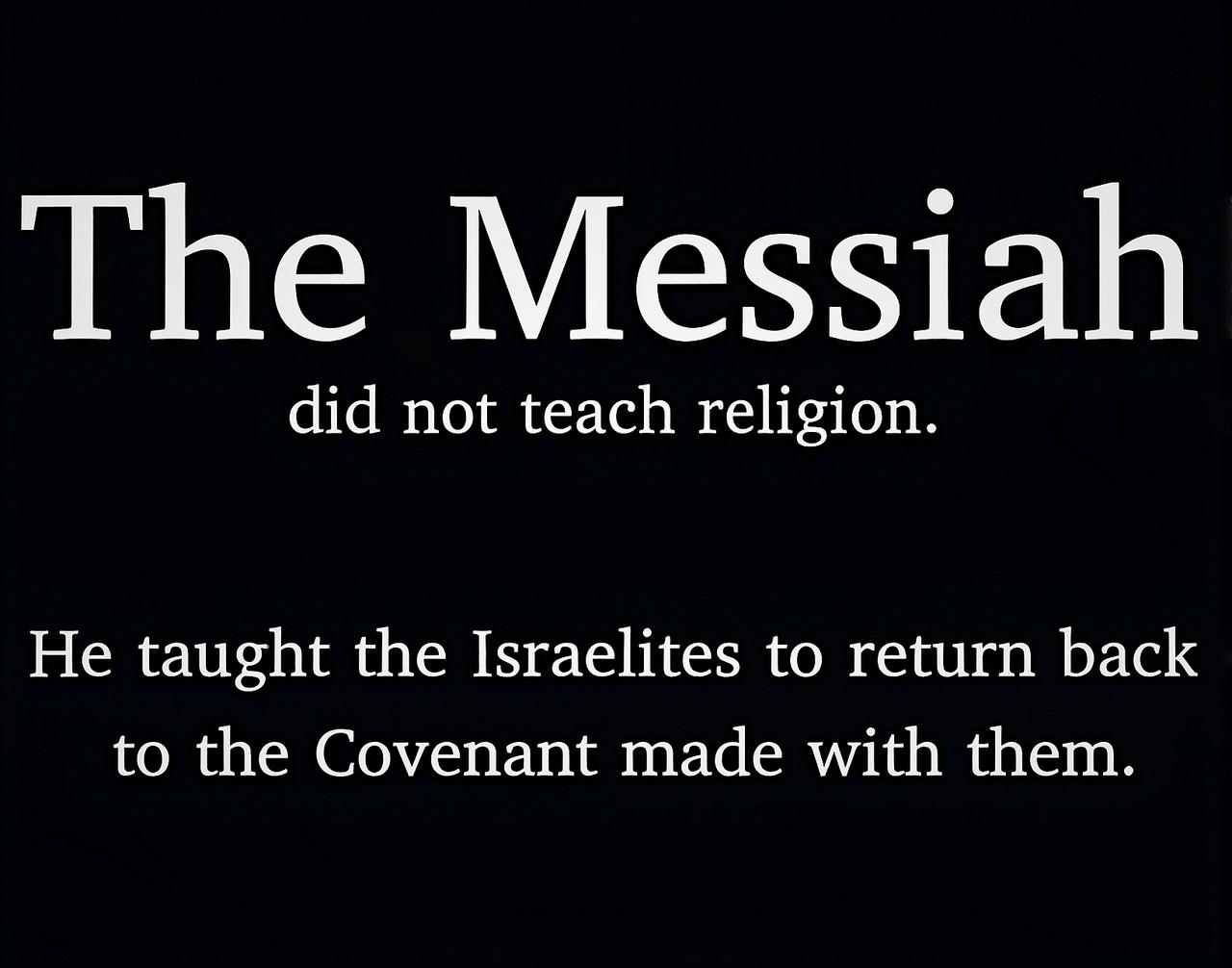
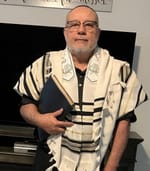

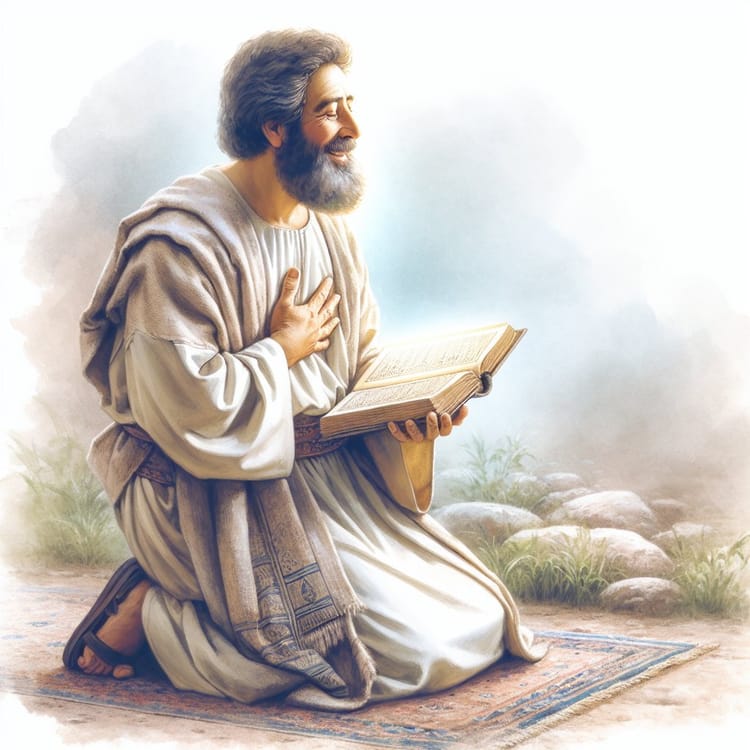
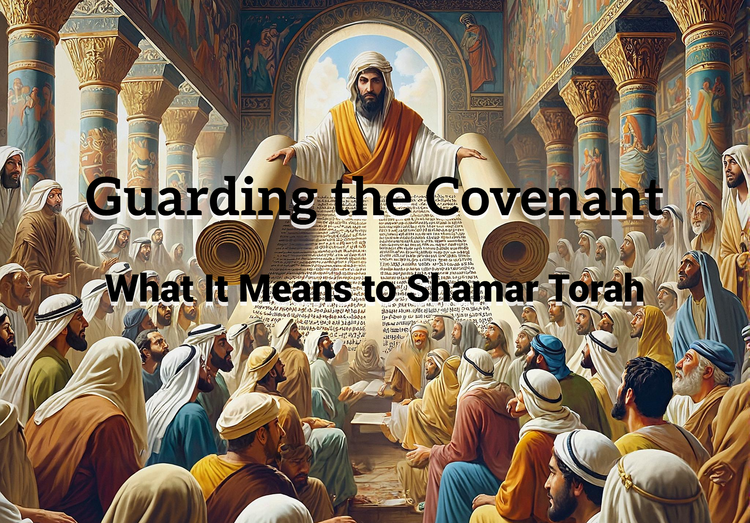
Comments ()